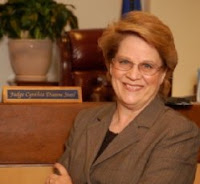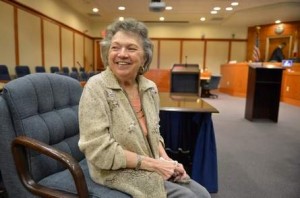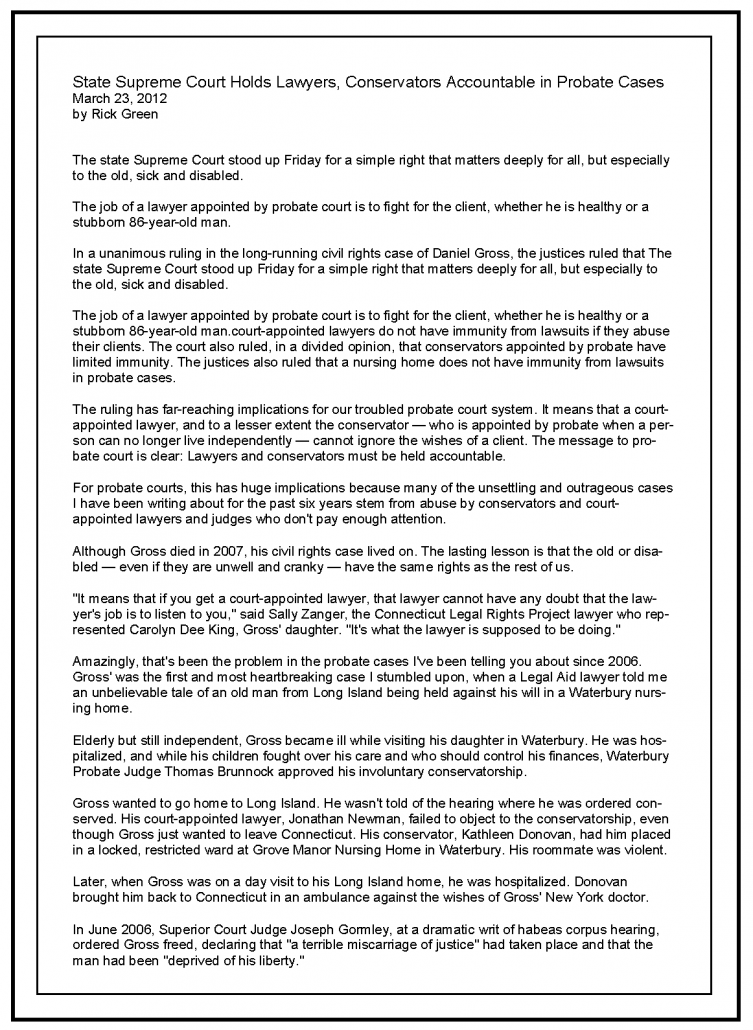Great Escapes!
We Celebrate These Successes and Congratulate the Families!
Rosensteil Case Settled!
Guardianship Legal Battle Ends in Secrecy
By Colleen Heild / Journal Investigative Reporter
Sunday, August 27th, 2017 at 12:05am
Copyright © 2017 Albuquerque Journal
A daughter’s claims of excessive billing and millions of dollars of mismanagement by her mother’s corporate guardian/conservator were secret from the start. During four years of litigation, virtually all of the court case was sealed from public view.
Now the professional malpractice lawsuit – a rare case against a New Mexico court-appointed professional guardian/conservator – has ended with a secret out-of-court settlement.
The settlement came a month after the judge in the case reversed himself and opened up court files in response to a motion by the Albuquerque Journal. The terms of the settlement weren’t revealed publicly.
Without a public trial, which was set for October, the opportunity to learn more from Leonie Rosenstiel’s case against Decades LLC of Albuquerque appears all but lost, just as a commission appointed by the state Supreme Court is looking for ways to reform the system.
Rosenstiel, the daughter of a New York financier, was an only child, and the personal representative for her mother, Annette Rosenstiel.
Annette Rosenstiel, who died in 2012, was a published author and lecturer who held a Ph.D. in anthropology.
After her father died and her mother began to show signs of dementia, Leonie sought to become guardian for her mother, but ultimately agreed to the appointment of Decades as both the guardian to make decisions on her mother’s daily care and as conservator tasked with overseeing her mother’s finances.
Rosenstiel’s lawsuit in 2013 alleged that over a nine-year-period, Decades “abused their position” as the appointed guardian and conservator for her mother, who died at the age of 100.
See the following articles by Colleen Heild and published in the Albuquerque Journal on the case:
Journal seeks to open guardian mismanagement lawsuit
Plaintiff in guardianship case wants the judge to step aside
Judge in guardianship case denies claims he is biased
High-dollar ‘malpractice’ case unsealed by court order
2016: Ernestine Franks Freed!
From WBSV TV 2, November 16, 2016
by Dave Huddleston
Who Makes Decisions for Your Elderly Loved Ones?
ATLANTA – Many aging loved ones have plans for when they are no longer able to make decisions for themselves, but are those plans legally binding??
Advance directives — legal documents like living wills and power of attorney — tell your family, doctors and the court your plans for end of life care.
But Channel 2’s Dave Huddleston spoke with families who said they lost custody of their loved ones because those advanced directives weren’t honored in probate court.
 “My mother made it clear who she wanted to take care of her and where she was going to live for the rest of her life,” Doug Franks told Huddleston.
“My mother made it clear who she wanted to take care of her and where she was going to live for the rest of her life,” Doug Franks told Huddleston.
In his mother’s advanced directives, 94-year-old Ernestine Franks said she wanted to stay in her Pensacola, Florida, home, and have her son, Doug, be her guardian when she could no longer make decisions for herself.
Doug Franks, who lives in Austell, already had power of attorney.
But after Ernestine Franks was confronted by a scammer while home alone, older brother, Charles Franks, wanted mom to move near his home in New Orleans. He said he contacted his mother’s trust who suggested a private guardianship company step in.
“He stated this was the biggest mistake he’s made in his life,” Doug Franks said.
Charles Franks also spoke to Channel 2 and explained his regret about the decision.
The brothers’ dispute landed in court.
In August 2012, a Florida probate judge said Doug Franks was unsuitable and unfit to act as guardian because of the dispute.
“We got in trouble because we wanted the best and we had different opinions what was the best for our mom,” Doug Franks said.
Ernestine Franks’ advanced directives, which included declaring Doug Franks durable power of attorney, designated healthcare surrogate and future guardian, were voided.
A private guardianship company, Gulf Coast Caring Solutions, took control of Ernestine Franks’ well-being, and Synovus Bank controlled millions of dollars in her trust.
“It was sad,” Doug Franks said. “The entire way, I drove back thinking I let my mother down, and she’s never let me down.”
According to court records, the sons’ visits with their mother were limited, and mostly supervised.
Gulf Coast Solutions asked the Franks brothers to not contact their mother three weeks after the guardianship was finalized so Ernestine Franks could establish a routine and bond with her caregivers.
Gulf Coast Solutions and Synovus gave up their rights to the Franks’ estate and Ernestine Franks in November 2014, citing a challenging relationship with the Franks brothers.
A Florida Judge appointed CPA J. Alan Kohr as her guardian and conservator. According to court transcripts, Kohr had been court appointed to serve as guardian or trustee in Escambia County, Florida, 46 previous times.
Doug Franks said guardians spent thousands from Ernestine Franks’ trust on food, personal care and fighting the brothers in court.
“It’s a dark cloud that’s over us all the time,” Doug Franks told Huddleston.
According to Escambia County Court system, guardianship cases are not handled solely at the discretion of the judges.
“Like all other cases in the judicial system, there are statutes, rules and other legal authority that apply and judges use their discretion and judgment within the parameters of the legal authority,” Susan A. Woolf, general counsel for Escambia Courts, told Channel 2 by email.
“Yes, they can override the advance directives,” elder attorney Danielle Humphrey said.
Humphrey said Georgia probate judges rarely void advance directives, and private guardianship is nonexistent in Georgia, but can effect Georgians with loved ones in other states.
In places with a high retirement population — like Florida — adult guardianship is big business.
“Possession is nine-tenths of the law and unfortunately, once they become under guardianship, they’re like your child,” Humphrey said.
When a loved one lives out of state, it puts them at risk.
She said private guardianship companies, and individuals, can take advantage of an isolated elder.
“They’re in it for the money. It’s a business, so they’re going to treat your mother, or your father, like a business,” Humphrey said.
Humphrey, and other experts, said living far from an aging loved one puts them at great risk. They also said an interfamily dispute often leaves probate judges at a loss as to how to deal with the aging relative.
According to the National Guardianship Association, nearly 3,000 jurisdictions regulate guardianship nationwide and everyone is different.
While they stressed there is a great need for guardians and many do a great service, but not a lot of information on guardians nationwide aren’t tracked, so abusive practices, even the number of guardians, is unknown.
Channel 2 spoke to other families who say their loved ones’ advanced directives were voided by probate judges, but most guardianship records are closed so it is hard to know why a judge thought a company would be a better guardian than the family member named in the advance directive.
After a four-year fight, the Franks brothers said the guardianship company gave up, because the cash dried up. It was nearly $2 million.
The case went to mediation and the brothers were given guardianship of Ernestine Franks.
They consider it a blessing to have their mother back.
“I was lucky, I was lucky as hell,” Doug Franks said. “We’re going to get her back. The key is to help other people, too, so this doesn’t happen to them.”
Doug Franks has been working with legislators in Florida and families across the county to strengthen guardianship and probate legislation.
He told Huddleston he is now in the process of moving to Pensacola to be closer to Ernestine Franks.
2015: Steve Miller: Judge Steel Frees Three “Wards” From Exploitative Court-Ordered Guardianship on Same Day!
 LAS VEGAS – In a unprecedented flurry of court action, on June 30, newly appointed Clark County Family Court Judge Cynthia Dianne Steel freed three previously court appointed wards of the court from the custody of their for-hire guardian April Parks.
LAS VEGAS – In a unprecedented flurry of court action, on June 30, newly appointed Clark County Family Court Judge Cynthia Dianne Steel freed three previously court appointed wards of the court from the custody of their for-hire guardian April Parks.
What would normally have taken years of expensive court hearings, motions, and lawsuits, in two short hearings conducted in one afternoon, over the protests of Parks and her attorney Lee A. Drizin, Judge Steel patiently listened to family members of three of Parks’ wards as they, acting without attorneys, explained that their parents were being exploited, and must immediately be released from Parks’ guardianship.
In the case of Elizabeth Indig, her daughter told the court that Parks and her attorney allowed her mother’s Henderson home valued at over $200,000 to be foreclosed upon and sold at auction for only $22,000 with Drizin’s full knowledge, and without the court’s required accounting or oversight.
Attorney Drizen was reportedly furious after the accusation and filed a motion with the court to have the family member who was representing her mother pro per, fined for vexatious litigation, and harassing April Parks. Judge Steel will hear Drizen’s argument on Thursday July 2, but is not expected to rule in his favor based on her June 30 ruling in favor of the release of Elizabeth Indig from Parks’ guardianship in which the family member acted as her own attorney in spite of Drizen’s loud protestations.
In the case of Rudy and Rennie North, their daughter told the court that her parents were not mentally impaired and do not need to be under court ordered guardianship. That during Parks’ guardianship, the North’s assets were taken, and the court did not require an annual accounting.
 In both cases, family members told Judge Steel that Parks initially came to their parent’s homes impersonating a police officer, and ordered the elderly people to come with her to a rest home, or face arrest.
In both cases, family members told Judge Steel that Parks initially came to their parent’s homes impersonating a police officer, and ordered the elderly people to come with her to a rest home, or face arrest.
In both cases, family members were not informed of Parks’ actions until after the parents were removed from their homes.
At subsequent hearings held before appointed Family Court Hearing Master Jon Norheim, (a former mob lawyer) neither Norheim or his boss Judge Charles Hoskin listened to the pleas of family members, and after being informed by Parks or her attorney that the adult children were either “unfit,” “exploiters,” or “drug addicts,” ruled that Parks be granted permanent guardian status for the rest of the parent’s lives.
Following a series of stories in The Vegas Voice, and on KNTV Ch. 13 News, the Boulder City Police Department opened an investigation of April Parks, and soon thereafter, her name was stricken from the State of Nevada’s list of professional guardians.
It is not yet known whether the families of Parks’ victims plan to take legal action to try to recover the monies Parks allegedly converted from their parent’s estates.
2015: Woman in Guardianship Series is Free!
All the rights that most adults take for granted — to spend their own money, to travel, to vote, to marry, to enjoy dinner out at a Red Lobster — once again belong to Linda Bous.
 Bous, 67, did not hesitate today when 12th Judicial Circuit Judge Charles Williams asked her if she wanted to say anything at the hearing to restore her rights and terminate a full adult guardianship of more than nine months.
Bous, 67, did not hesitate today when 12th Judicial Circuit Judge Charles Williams asked her if she wanted to say anything at the hearing to restore her rights and terminate a full adult guardianship of more than nine months.
A small and soft-voiced woman born in Scotland, she spoke out clearly and briefly about the injustices she believes were done to her.
Distraught from her husband’s death in January 2014, Bous had been found by a medical team to be lacking capacity to make her own decisions and was placed by her emergency temporary guardian in an assisted-living facility. In October, her desperate phone call to the Herald-Tribune set in motion the legal process that led to her freedom today.
“It was a terrible loss, to lose my husband and best friend of almost 30 years,” Bous told the judge. “But if I had had my rights at that time, none of this would have happened.”
The Sarasota resident acknowledged that when someone from the Department of Children and Families visited her home, she was ill and needed assistance. But with help, she said, she could have handled the paperwork for her husband’s estate and resumed her life without him.
“I feel that I was abused,” she told the judge, “because I had no chance to speak for myself.”
Florida’s elder guardianship system, a patchwork of legal and customary procedures designed to protect and care for state residents suffering from dementia or frailty, is based on a statute that is considered a model in the United States. But in practice, critics say, the statute’s provisions to ensure due process for proposed wards are routinely ignored.
The system can be bewildering for wards and their families, who often lack access to legal expertise. And while someone can be placed under guardianship in a matter of days, getting out has felt like a long and mysterious process for Bous and her sister-in-law, Jane McElree.
“I have no idea what’s supposed to happen next,” McElree said today. “When are we going to find out where Linda’s bank accounts are?”
Note: “The Kindness of Strangers” is an investigative series of the Herald Tribune reported by Barbara Peters Smith
2013: Against All Odds – Congratulations Guadelupe Olvera!
 On August 21, 2013, California Superior Court Judge Paul M. Marigonda restored the rights of 94-yr-old WW2 hero Guadalupe Olvera after a court appointed Nevada guardian bled $300,000.00 from Olvera’s family trust, deprived him of his civil rights, and held him captive in his Henderson, Nevada home from the beginning of November 2009 until the end of September 2010 when Olvera defied Nevada for-hire guardian Jared Shafer’s orders and moved back to California to spend his final days with his family.
On August 21, 2013, California Superior Court Judge Paul M. Marigonda restored the rights of 94-yr-old WW2 hero Guadalupe Olvera after a court appointed Nevada guardian bled $300,000.00 from Olvera’s family trust, deprived him of his civil rights, and held him captive in his Henderson, Nevada home from the beginning of November 2009 until the end of September 2010 when Olvera defied Nevada for-hire guardian Jared Shafer’s orders and moved back to California to spend his final days with his family.
Shafer then spent Olvera’s funds paying attorneys in Nevada and California in an expensive but failed effort to force Olvera to return to Nevada, while holding his estate captive until August 21, 2013 when Judge Marigonda finally restored Olvera’s civil rights. Confirming that Guadalupe Olvera was and is competent to handle his own personal and financial affairs, Judge Marigonda overruled the orders of Shafer crony, Clark County Family Court “Guardianship Commissioner” Jon Norheim, and released Olvera from a forced California guardianship required by Shafer as a condition for the Nevada termination of Shafer’s four-year-long control of Olvera’s person and fortune.
Asked how he feels after regaining his civil rights, Guadalupe Olvera stated: ‘I’m glad I’m free from what he did to me. I’m free now and I don’t ever want to hear his name again. I hope he goes to jail.’
2013: Jared E. Shafer Loses Guardianship; Looted Senior Citizen Returns to Claim Home and Possessions After Winning Termination in a Bittersweet Victory!
 For the first time known, a wealthy senior citizen was able to escape from the custody of Nevada court appointed “guardian” Jared E. Shafer, and recover the majority of his assets before he dies.
For the first time known, a wealthy senior citizen was able to escape from the custody of Nevada court appointed “guardian” Jared E. Shafer, and recover the majority of his assets before he dies.
Because of an arcane Nevada law, many elderly people who decide to spend their golden years in one of Las Vegas’ pristine retirement communities have found themselves in financial servitude after the death of a spouse. It’s not unusual to learn of a elderly widow or widower — at their most vulnerable time — becoming a “ward” of one of our state’s licensed private “guardians” who completely takes over the senior’s person and estate while waiting for their death in order to claim his or her assets for the county, or in the worst case, themselves.
This is possible because in Nevada a person who is handicapped or elderly and has a sizable estate can be forced into guardianship unless there’s a qualified relative living in the same state that can care for their needs. Too often, as in the case of Guadalupe Olvera, the nearest relative lives in another state, and under Nevada law, is prohibited from becoming a guardian after the death of a care giving spouse. Mr. Olvera suffered the consequences of this law when it was discovered by strangers in the Clark County Family Court system that he had over a half million dollars cash in his trust account, and a fully paid for 3,000 square foot Sun City Anthem home worth another half million.
On the outside, Olvera looked ripe for the picking, a rich old man with severe physical disabilities, and no relatives in sight. The only problem? WW2 hero Guadalupe Olvera was not ready to die, and he had a tough as nails, loving family five hundred miles away who wanted him to come home to spend his final days in Central California, not cooped up in a big empty house in a cold, strange town waiting for Jared Shafer to see fit to end his “temporary guardianship.”
Full Article and Source: Rick Porrello’s – AmericanMafia.com – Steve Miller – Inside Vegas
2012: A Victory We Will Never Forget!
Daniel Gross, one of NASGA’s first “Great Escapes” passed in 2007, but his legacy lives on through a CT State Supreme Court Decision announced in March of 2012 which will pave the way to holding lawyers and conservators (and guardians) accountable.
Thank you, Dan Gross and daughter, NASGA member, Dee King. May this decision lead to many more “Great Escapes.”
Source:
Hartford Courant article by Rick Green
 Special THANKS to Hartford Courant’s Rick Green for following the Daniel Gross story from the beginning and keeping the spotlight on conservatorship abuse in the CT probate courts.
Special THANKS to Hartford Courant’s Rick Green for following the Daniel Gross story from the beginning and keeping the spotlight on conservatorship abuse in the CT probate courts.
2011: Conservatorship Ends at Last!
 I want to share the story of the amazing release of my mother, Patricia C. Rosen, from conservatorship. Her conservatorship was ended July 28, 2011 by Judge Colleen Sterne.
I want to share the story of the amazing release of my mother, Patricia C. Rosen, from conservatorship. Her conservatorship was ended July 28, 2011 by Judge Colleen Sterne.
It took six years to end this unjust conservatorship. Hundreds of thousands of dollars were lost to a profit making network. None of the people who made money off the conservatorship have responded to the letters to the editor, and I welcome them to do so.
The last professional conservator resigned after I challenged a Temporary Restraining Order (TRO) put on me, and I subpoenaed witnesses. She turned the conservatorship over to the Santa Barbara Public Guardian, who was a horse of a different color than the professional conservators.
The professional conservators claimed my mother had dementia, citing their own evaluators. She was portrayed as going downhill, and needing caregiving. Using my mom’s money, they fought her efforts to get out of conservatorship, and even tried to take away her medical right of informed consent. When my mother’s doctor of many years wrote a letter stating she shouldn’t be under conservatorship, he was told he couldn’t see her anymore. When my mother chose her own evaluator, and got a positive result, it was discounted, and the evaluator wasn’t paid.
On the other hand, the Public Guardian’s office saw my mom as competent and able in every way, and fought for her rights and dignity. The case manager genuinely cared for her welfare.
I believe in the Public Guardian as an alternative to private, professional conservators. There is no incentive to devour estates, as the salaries of staff members are fixed. People are so easily corrupted by money.
My mother has been the victim of elder financial abuse. One can hear my mother’s story by going to ustream.tv and searching for “Are Conservators Robbing the Elderly?” To avoid this kind of problem, before choosing a conservator or fiduciary, go to the National Association to Stop Guardian Abuse website at StopGuardianAbuse.org.
~Bryan Rosen
Montecito
2010: Woman Freed From Conservatorship!
Ginger Franklin Regains Control of Her Life
(reported by Nancy Amons)
 A Nashville woman who fought for nearly two years to get out from under a court-ordered conservatorship was set free Thursday.
A Nashville woman who fought for nearly two years to get out from under a court-ordered conservatorship was set free Thursday.
Ginger Franklin had a conservator, or guardian, appointed to handle her affairs after she tumbled down the stairs at her house in 2008 and suffered a brain injury. After she recovered, she tried to regain control of her life but found it to be a long and draining ordeal involving multiple court hearings.
On Thursday, Nashville Probate Judge Randy Kennedy dissolved the conservatorship after reading a new doctor’s report that Franklin had fully recovered.
“It’s hard to take it all in,” Franklin said. “I’m a free woman. I can drive. I can work. I can get married. I can vote.”
They are things that most Americans take for granted, but they are things that people under a conservatorship are not allowed to do for themselves.
Franklin said she hopes to get her job back and start her life over.
“I’m going to celebrate by celebrating my life every day,” Franklin said.
2010: Musician Doesn’t Need Conservator, Says Judge
Conservation Has Consumed $200,000 Of Danny’s Tate’s Savings
(reported by Nancy Amons)
 A probate judge dissolved the guardianship that controlled a songwriter’s finances while he was addicted to crack. But the judge made no apologies for setting up the guardianship to begin with.
A probate judge dissolved the guardianship that controlled a songwriter’s finances while he was addicted to crack. But the judge made no apologies for setting up the guardianship to begin with.
The guardianship has managed his financial and legal affairs for the last three years. The musician’s brother became Danny’s conservator when Danny was admittedly addicted to crack cocaine. Danny Tate said he is now clean and sober.
Circuit Judge Randy Kennedy ruled that songwriter Danny Tate no longer needs a conservator. The judge gave Danny’s brother David, the conservator, 60 days to account for how the money expended has been spent.
During the conservatorship, Danny Tate’s bank accounts dwindled to nothing. He’s not only paying his own legal fees, he’s paying the lawyers his brother hired.
For example, attorney Paul Housch billed the musician for more than $21,300 for work done in a period of two months.
Danny Tate’s estate, once valued at about $600,000, is now gone.
The conservation, including its legal fees, consumed more than $200,000 of the songwriter’s savings.
The courtroom Monday morning was packed with people wearing T-shirts reading “Free Danny Tate.” Supporters traveled from as far as Washington, D.C., and Key West, Fla., to show their support. They applauded loudly when Danny Tate entered the courtroom for the hearing Monday morning.
The lawyer for David Tate, Danny’s brother, agreed that there doesn’t need to be a permanent conservator. He asked for a temporary conservatorship so that Danny Tate will continue to undergo drug testing.
Danny Tate’s lawyer said that psychiatrists have found Danny Tate competent to handle his own affairs, and the lawyer asked to dissolve the guardianship.
“It was just a big victory for me, as an American citizen, to be able to make my own choices,” said Danny Tate.
2009: Rena Moss Freed from Guardianship
 So happy to tell your readers how I was restored. My sincere appreciation to a fair and objective neurologist from Northfield, Il. who took his time to listen to my story and agreed I did not need a guardian. This letter from him was the ticket out of the system. Immediately, my money was returned and my property. It took months for the mail to get back to me. It all started with a letter from a neurologist in Hinsdale, who was not fair or objective, and is now facing legal action.
So happy to tell your readers how I was restored. My sincere appreciation to a fair and objective neurologist from Northfield, Il. who took his time to listen to my story and agreed I did not need a guardian. This letter from him was the ticket out of the system. Immediately, my money was returned and my property. It took months for the mail to get back to me. It all started with a letter from a neurologist in Hinsdale, who was not fair or objective, and is now facing legal action.
The court seems to act on direction of the physician, without a medical doctor. I doubt people would find themselves as property in the for-profit and legal swindle of guardianship. The one thing that baffled me and still does: the ward is not even given basic competency tests. It should be required before the judge gives your rights, money and mail up to anyone, or in my case everyone. My daughter, her two lawyers. The OPG (office of public guardian) caseworkers, more lawyers, the GAL (guardian ad litem) and finally my attorney who admitted I was high functioning – normal as any one of them – and more so than some. I showed up at every court date for two years, while I worked a full time job, and wrote letters of complaint to all organizations I could think of. I was on a mission to beat the system and get my life back. Nothing was gonna stop me; I was determined. It cost me and plenty, but it worked. Freedom really is priceless.
Also, the only agency that was even willing to act on the behalf of the ward is “Equip for Equality”.
So, that is the end of two years of fighting, stunning legal fees and the family I used to depend on – the same family that used to depend on me. I miss my grandsons and hope someday things are different. And final thanks goes to the attorney who took my med malpractice case to court.
~Rena Moss
2008: Maydelle Trambarulo Free
 Maydelle Trambarulo is finally FREE! A resident of NJ, she has been trapped by the CT probate system for three long years and imprisoned in a CT nursing home away from her family
Maydelle Trambarulo is finally FREE! A resident of NJ, she has been trapped by the CT probate system for three long years and imprisoned in a CT nursing home away from her family
After a Superior Court judge recently ruled Maydelle could return to her family, unbelievably, her conservator asked the judge for a stay of Maydelle’s release from his custody! The battle seemed insurmountable, but the Trambarulos believe in miracles – and they just got one!
 Helen Fabis is Sylvia Rudek’s beloved Aunt and God Mother.
Helen Fabis is Sylvia Rudek’s beloved Aunt and God Mother.
She was a clothing designer and gifted seamstress. She designed and sewed Sylvia’s wedding dress, veil, purse-the entire outfit including the apron that is customary to put on at the end of the wedding reception. This photo still makes Sylvia smile; it always will.
Although Sylvia lost her dear Aunt, she was instrumental in seeing that the temporary guardian, Kathleen Simane, was held accountable and lost her own freedom when she was sent to prison.
2006: Woman Sentenced for Swindling Great Aunt
(Published Friday, July 21, 2006 11:19:31 AM CDT)
By Mike DuPre’ Gazette Staff
(Note: Kathleen Simane was Sylvia’s Aunt’s court-appointed temporary guardian.)
The next 20 years of Kathleen Simane’s life will be either behind bars or under the state’s watchful eye. And if Simane violates either extended supervision or probation she could spend up to 25 years in prison.
Judge James Daley sentenced Simane, 36, St. Paul, Minn., on Thursday for two counts of theft by bailee in a case in which her great-aunt, Helen Fabis, and other relatives were swindled out of more than $78,000. Simane pleaded guilty to the two charges in April.
In a barely audible voice, Simane apologized to her relatives for her crimes and said she would pay the court-ordered restitution: $78,290.
In addition, she must pay a 15 percent surcharge-$11,743-to the estate.
“She is incredibly remorseful and never intended to do any harm to (Fabis),” said Simane’s attorney, Stephanie Ames of Woodland Hills, Calif.
Simane became Fabis’ guardian because no one else in the family was willing to help the elderly woman, not because she was after her money, Ames said.
“This is a crime of impulse and opportunity,” the lawyer said.
Fabis, an 85-year-old childless widow of 30 years, fell seriously ill in March 2001, and Simane was named temporary guardian in what was a family emergency.
Fabis, a rural Edgerton resident, died the next month.
Prosecutor Barbara Oswald, an assistant attorney general for Wisconsin, painted a different picture: “This is a case about greed, not about need. … Kathleen Simane is a financial predator. She preys on people whose assets allow her to live a better lifestyle.”
Within days of gaining access to Fabis’ accounts, Simane started spending her great-aunt’s money, Oswald said.
Simane paid off one car and bought a better vehicle, Ames said.
Simane paid for breast augmentation with Fabis’ money, and after Fabis died in April 2001, Simane asked that the funeral be delayed while her breasts healed, according to court documents.
“(Simane) also went to the effort of cashing (Fabis’) Social Security checks,” the prosecutor said.
Two relatives-Estelle Hartman, one of Fabis’ sisters, and Sylvia Rudek, Hartman’s daughter-asked the judge to sentence Simane to at least 10 years in prison.
“I am sad, and I feel guilty for the tragic way Helen died,” Hartman said in a statement read by Ames. “The pain became greater as Kathleen’s betrayal and treatment of my sister was revealed by my daughter, Sylvia.”
Rudek said: “Our family of four generations was destroyed by one person, and that person is Kathleen Simane. Kathleen Simane is not considered a member of our family. …
“There is nothing that Kathleen Simane won’t say or do to get what she wants,” Rudek said.
In levying his sentence, Daley noted Fabis’ vulnerability and Simane’s speed in taking advantage of her great-aunt.
“The funds should have been used for her benefit, but you used them for your benefit,” Daley admonished Simane. “You took money from someone who could not protect herself. You were supposed to protect her. …
“We as a people will be judged by how we treat the least in our society and those who cannot help themselves,” the judge said.
(See also: From Television Personality to Prison)
2006: Wrenching Story Ends With Justice
Waterbury, Connecticut
by Rick Greene
July 14, 2006
(Note: Daniel Gross is NASGA Member Dee King’s Father)
I could go on about the travesty that left Daniel Gross – an 86-year-old New York man with no legal connection to Connecticut – locked in a Waterbury nursing home for 10 months, his freedom stolen in the courtroom of Waterbury Probate Judge Thomas Brunnock.
Gross’s shameful ordeal is a powerful lesson for our state legislators and governor, who are unwilling to demand reform of Connecticut’s shoddy probate court system.
But Gross is now a free man. I prefer the words of the Superior Court judge who ordered Gross freed at an emotional hearing in Waterbury Wednesday.
“A terrible miscarriage of justice has happened here,” Judge Joseph Gormley told the courtroom as Brunnock and the lawyers who worked on the old man’s behalf hung their heads.
 What happened was Gross, ailing and living alone on Long Island, came to visit his daughter in Waterbury last summer. He was hospitalized in August, suffering from cellulitis, as his children bickered over his care and who should control his money.
What happened was Gross, ailing and living alone on Long Island, came to visit his daughter in Waterbury last summer. He was hospitalized in August, suffering from cellulitis, as his children bickered over his care and who should control his money.
With Gross increasingly uncooperative, the hospital asked probate court to step in. His children agreed. Within days, Brunnock approved handing control of Gross’s life to a court-appointed conservator.
Gross didn’t want a conservator and wasn’t even at the probate court hearing at which a conservator was named.
“This case has disturbed me from day one. I kept looking for evidence to support what was done, but I find none,” said Gormley, who freed Gross on a writ of habeas corpus, terminating the conservatorship.
Gormley had strong words for Gross’s court-appointed lawyer, Jonathan Newman. Last September Newman urged Brunnock to name a conservator for Gross, taking away his freedom and control over his finances.
“It is obvious to me he grossly underrepresented and misrepresented Mr. Gross,” Gormley told the court as Gross looked on. The ruling removes Newman, and Kathleen Donovan, his conservator, from Gross’s life. Newman was unavailable for comment Thursday.
Gormley said he was mystified how Brunnock thought his court – which covers Waterbury, Wolcott and Middlebury – had jurisdiction over the estate of a New York man visiting his daughter. He likened it to the absurd notion of forcing visitors to the state to pay income taxes merely because they spent a few days here.
Mr. Gross’s plight is yet another reason to doubt the probate courts. It is a system in which prospective judges with close ties to the local legal community win office through election, their campaign coffers stuffed with contributions from lawyers and political insiders. No legal training is required to be a probate judge. Procedures can vary widely from district to district.
I wonder how many other Daniel Grosses there are, ones whose lives are buried in the backslapping underworld of probate court.
Were it not for two volunteer lawyers, John Peters of West Hartford and Veronica Halpine of Greater Hartford Legal Aid, Gross might still be in Grove Manor Nursing Home. His house, approved for sale by Brunnock, might have been sold, and an old man forever lost.
Ambling out of Wednesday’s hearing with a walker, Gross said he couldn’t wait to return to Long Island, where he will now live with his daughter Carolyn’s assistance.
“I am overwhelmed with happiness,” he said.
So am I.


